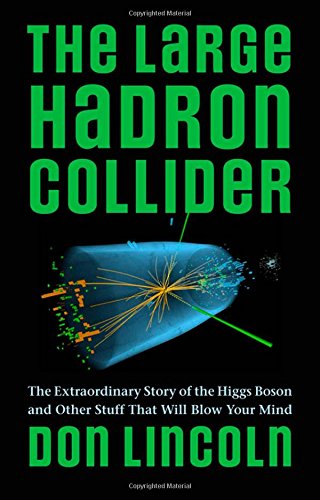Last Monday, I sat down (via Skype) with Fermilab senior scientist Don Lincoln to discuss his new book, The Large Hadron Collider: The Extraordinary Story of the Higgs Boson and Other Stuff That Will Blow Your Mind. This interview is my first contribution to the New Books Network (I’ll specifically be contributing to the Physics and Astronomy channels), and you can listen to the full hour here.
What Dr. Lincoln excels at, in the book and particularly in conversation during the interview, is calling up appropriate analogies to explain incredibly complex topics. One of my favorite examples is when he compares the different types of magnets that keep the proton beam of the LHC on track to a team of Kindergarten teachers trying to keep an unruly group of children moving in the right direction. I really enjoyed chatting with him about his experiences, both as a high-level researcher and an avid science communicator, and how those two passions feed back on each other. Being able to explain a concept to others is truly a formidable test of understanding it yourself, and, as Dr. Lincoln says, a useful analogy or physical intuition–while not perfect–can help focus your attention and help you move forward as a scientist.
In addition to numerous books, Dr. Lincoln is responsible for many of the short videos on Fermilab’s YouTube channel, as well as a TedEd video explaining the Higgs field:
As a side note, I remember watching this video two years ago when the Higgs announcement was made. As I recall, another analogy involving a snowy field was printed in the New York Times around the same time, and I remember wondering whether all Higgs boson analogies needed to trade on different meanings of the word “field” to get across (Higgs field, snowy field, field of physics…). Just a funny coincidence, I guess.
In any case, I greatly enjoyed hearing from Dr. Lincoln and he has a real knack for telling stories and explaining concepts. If you’re at all curious about modern particle physics or an insider’s perspective on the LHC and the Higgs, give the interview a listen (or better yet, pick up the book)!

